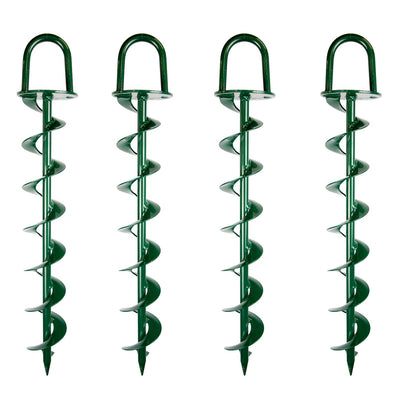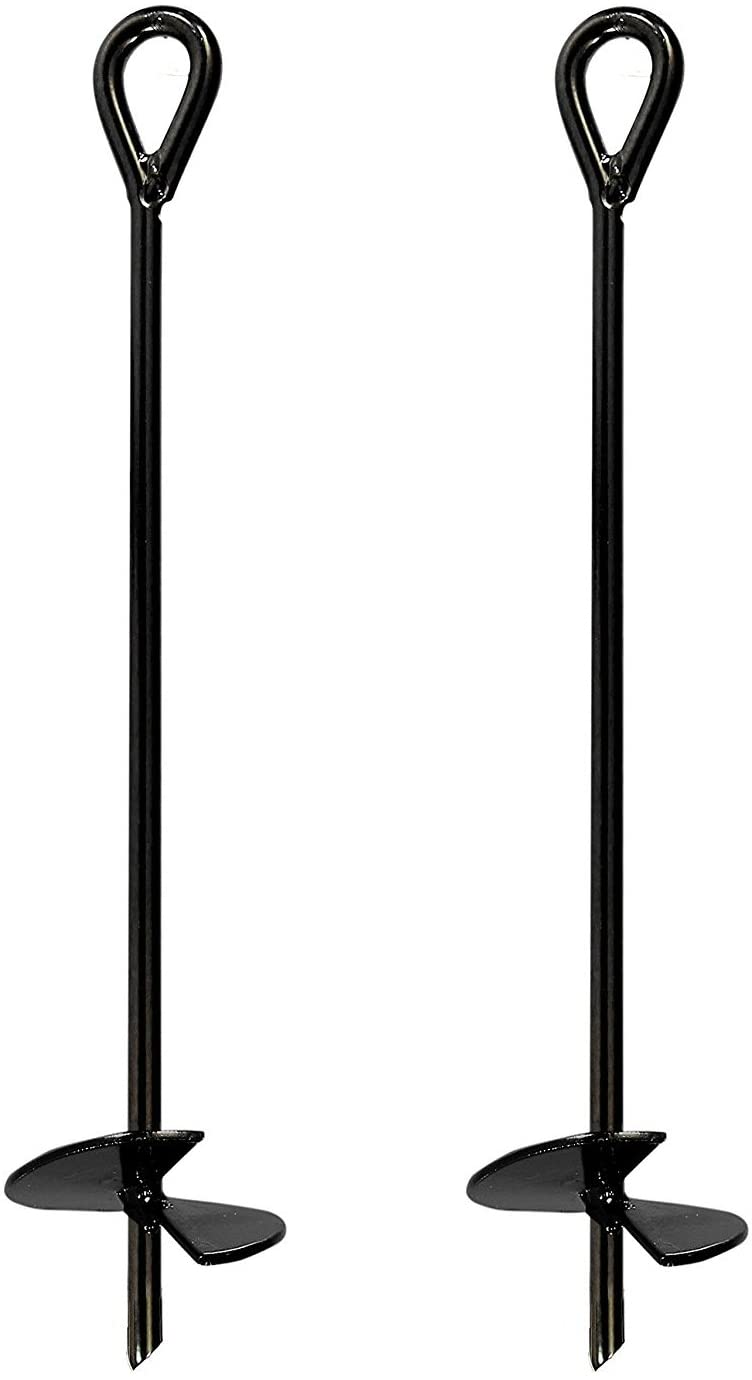Why You Should Use a Strong Ground Anchor for Enhanced Stability
Why You Should Use a Strong Ground Anchor for Enhanced Stability
Blog Article
Check Out the Various Kinds of Ground Anchor for Your Next Job
When getting started on a building and construction or landscaping project, recognizing the numerous kinds of ground supports offered is vital to making sure both security and resilience (Ground Anchor). From auger supports, which succeed in varied dirt problems, to risk supports designed for short-lived installments, the options are various. Furthermore, concrete and screw supports present distinct advantages in certain circumstances, while deadman supports are customized for applications calling for resistance to side pressures. The choice of an appropriate support kind can substantially influence the overall success of your task, prompting more expedition into their corresponding advantages and applications.

Auger Anchors
Auger supports are a prominent option in numerous construction and landscaping tasks as a result of their unique layout and reliable anchoring capacities. These anchors include a helical screw-like shaft that is driven into the ground, enabling a safe and secure hold. The spiral style helps with very easy setup and makes best use of resistance against lateral pressures, making auger anchors especially reliable in applications such as secure fencing, temporary frameworks, and disintegration control.
The setup procedure of auger anchors is reasonably uncomplicated. They can be by hand or mechanically mounted, depending on the dimension and required deepness. This versatility enables their usage in diverse dirt problems, from sandy to clayey terrains. Additionally, auger anchors can be conveniently gotten rid of and reused, which includes to their cost-effectiveness and sustainability.
One of the significant advantages of auger supports is their capability to distribute loads evenly throughout the surrounding soil, reducing the threat of dirt disruption and reducing ecological impact. In addition, they are less susceptible to loosening or heaving in time compared to typical securing approaches. Auger supports are an outstanding option for projects requiring trusted and durable anchoring services.

Stake Anchors
When it involves safeguarding frameworks in a variety of exterior applications, risk anchors offer a trusted and uncomplicated remedy. These anchors are generally built from sturdy products such as steel or aluminum, designed to endure environmental tensions while providing optimum security. Their easy layout permits quick setup, making them an ideal choice for momentary or permanent anchoring needs.
Risk supports are particularly helpful in safeguarding tents, covers, and other light-weight structures against wind and climate. They operate by being driven right into the ground at an angle, creating a strong hold that resists pull-out pressures - Ground Anchor. The performance of risk anchors relies on a number of variables, including soil kind, dampness material, and the angle of installation
For included safety and security, lots of stake supports include add-on factors for bands or ropes, enabling tension modifications as needed. In applications such as landscape design or construction, they can efficiently stabilize equipment or frameworks on unequal surface. Overall, stake supports offer a functional and cost-effective solution for securing various outside setups, making them a recommended selection for professionals and DIY fanatics alike.
Concrete Anchors
Concrete supports provide a robust service for securing frameworks to concrete surface areas, ensuring stability and security in various applications. These anchors are vital for jobs varying from residential constructions to massive industrial installations. They come in different kinds, including growth supports, glue page supports, and undercut anchors, each developed for certain tons demands and environmental conditions.
Development supports count on mechanical devices to hold the concrete when mounted. They are optimal for tool to heavy-duty applications. Adhesive supports use high-strength epoxy or resin to bond the support to the concrete, supplying superior load-bearing capabilities, specifically in fractured concrete scenarios. Undercut anchors develop a distinct form within the concrete, giving outstanding holding power, specifically in applications where tensile loads are common.
When performed correctly, concrete anchors significantly enhance the structural honesty of numerous projects, making them important in contemporary building techniques. Comprehending the certain demands of your project will help in selecting the right type of concrete anchor for the task.
Screw Anchors

Screw supports are a functional attaching option that can be properly employed in a variety of applications where standard concrete supports might not be adequate. These supports consist of a helical style that permits them to be conveniently driven right into the ground, making them perfect for use in soil and other substratums. Their one-of-a-kind framework supplies superb holding power and resistance to pull-out pressures, making them ideal for various jobs, from landscaping to architectural support.
Among the main advantages of visit our website screw supports is their convenience of setup. They call for minimal devices and can commonly be set up without the requirement for excavation, which saves both time and labor prices. In addition, screw anchors can be gotten rid of and recycled, using a sustainable solution for short-term applications.
Screw supports are particularly helpful in locations where dirt problems are challenging, such as loose or sandy dirts. Their ability to be mounted at varying depths allows for modification based upon specific job needs. On the whole, screw anchors give a reliable and reliable anchoring method, making them an outstanding selection for service providers and designers seeking effective solutions for their tasks.
Deadman Anchors
Deadman anchors serve as a robust solution for stabilizing structures in challenging problems, particularly where typical securing approaches might fail. These anchors include large, heavy objects buried underground, which produce resistance against side pressures. The style typically entails a straight element, such as a block of concrete or a steel plate, buried in the dirt, to which cords or bands are attached.
The efficiency of deadman anchors exists in their capacity to distribute tons over a larger area, decreasing the risk of failure in unpredictable soil problems. They are especially useful in applications such as retaining wall surfaces, temporary frameworks, and slope stablizing, where dirt activity can compromise the honesty of the structure.
Setup of deadman anchors requires careful preparation to ensure they are placed at the proper deepness and orientation, optimizing their load-bearing capability. While they may need more labor and product than light-weight supports, their reliability in unfavorable problems makes them indispensable for long-lasting jobs. Furthermore, deadman anchors are flexible and can be adjusted to various applications, making them a go-to selection for designers facing special challenges in their projects.
Verdict
In summary, choosing the proper kind of ground support useful link is important for making certain security and safety and security in different tasks. Auger supports master diverse dirt problems, while risk anchors match short-lived applications. For concrete surfaces, development and sticky anchors provide trustworthy choices, and screw anchors provide flexibility in difficult terrains. Deadman supports are especially efficient in standing up to lateral forces for keeping walls. Cautious consideration of these alternatives will enhance task outcomes and structural integrity.
Furthermore, concrete and screw supports present one-of-a-kind benefits in details situations, while deadman anchors are customized for applications needing resistance to lateral pressures - Ground Anchor.Auger anchors are a popular selection in different building and construction and landscaping jobs due to their unique design and effective anchoring abilities. They come in different types, including development supports, sticky anchors, and undercut anchors, each created for certain tons demands and ecological problems
Adhesive anchors utilize high-strength epoxy or resin to bond the support to the concrete, using premium load-bearing abilities, especially in broken concrete scenarios. Generally, screw anchors provide a efficient and dependable anchoring approach, making them a superb choice for specialists and engineers seeking effective remedies for their projects.
Report this page